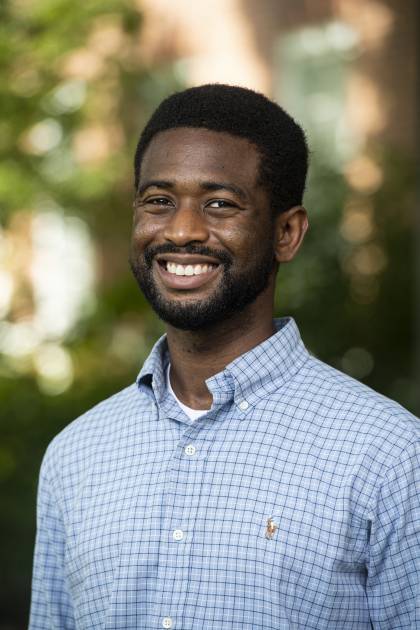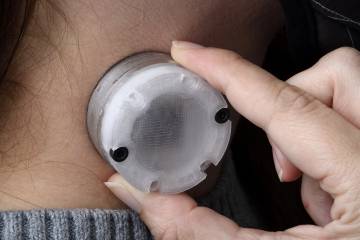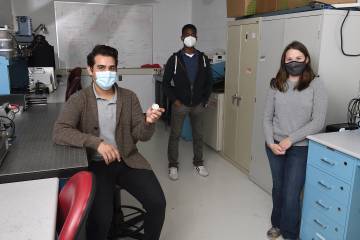Adebayo Eisape, a PhD candidate in the Department of Electrical and Computer Engineering at the Johns Hopkins Whiting School of Engineering, usually wakes each morning by rolling over, bleary-eyed, to check messages on his phone.
One morning recently, however, he was jolted awake by an email stating he had been selected as one of 10 2021 Microsoft Research PhD Fellows.
"I froze for a bit and couldn't figure out if I was dreaming," Eisape said. "I counted my fingers to make sure I was awake, checked again, and the email was still there. I called my girlfriend and siblings to make sure I was actually awake, then checked again and I was still a recipient. I spent the rest of the day trying to let the feeling sink in. It has been a few weeks and I'm still not sure it has."

Image caption: Adebayo Eisape
Image credit: Will Kirk / Johns Hopkins University
The competitive fellowship, for which more than 1,000 people applied, not only will underwrite the next two academic years of Eisape's tuition and fees, but also comes with a $42,000 yearly stipend applicable to living expenses and conference travel. In addition, it invites Eisape to Microsoft's PhD Summit, a two-day workshop during which fellows will share their work with researchers at Microsoft and other top students. (This year's event will take place in the fall, either in person or virtually.)
Eisape, who completed his ECE undergraduate degree at Johns Hopkins University in 2016, hadn't heard of the fellowship until his adviser, ECE Professor James West, told him he was going to nominate him.
"I nominated Bayo because of his hard work and contributions to sensor research. There are a few highly competitive fellowships aimed at supporting underrepresented minorities and women, and Microsoft's is one of the most cherished," said West. "Bayo joined my lab during his second year as an undergraduate and has always brought fresh ideas to any problem we are presented with. I can always depend on him to get the job done."
Eisape's research focuses on low-frequency energy harvesting and sensing using electrostatic and piezoactive materials, which respond to pressure. Harvested energy can be used to power long-lasting sensing nodes that can collect data and transmit it for long-term storage or processing.
The goal of Eisape's research is to build sensing nodes that are self-powered, so that they do not need to be frequently replaced. This would allow for measuring to occur over large areas or over long time scales without the need for extensive infrastructure or limits on the length of time a node is in operation. His work also focuses on the use of sensing nodes in new contexts, such as inside the human body or in hard-to-access areas of structures, like the inside a concrete pillar.
Eisape had success with his research this past fall as a member of the ECE graduate team Hearo, which placed second at the Collegiate Inventors Competition sponsored by the National Inventors Hall of Fame. Using electrostatic transduction that was also utilized as an energy harvester, the group created Hearo, a noise-rejecting sensor. Part of the work Eisape presented in the fellowship application involves the use of an electret for energy transduction in Hearo.
Eisape hopes that this fellowship will lead to collaborations that allow him to find more uses for his research.
"One of the projects that a couple of my interviewers were working on was developing low powered air quality sensors for use in urban environments," Eisape said. "If that sensor could be self-powered by the oscillations of the building, it would be extremely crucial to implementing fine resolution environmental measurements, similar to small hyper-local weather stations."
Eisape credits the ECE department's collegial nature, interdisciplinary emphasis, and atmosphere that encourages students to explore various research pathways for his growth as an engineer. After graduating with his PhD, Eisape hopes to work somewhere with a similar approach.
"Everyone [in the department] is so willing to work together and offer help, and I've been lucky enough to be here for all of my degrees," Eisape said. "Another huge factor in my success is how relentlessly supportive Dr. West and the department have been. It's an environment that's pretty hard to describe. Even when you disagree or make a mistake, you're still among friends that will help in any way they can. I'm sure other departments are fine, but it's definitely something different and special here."
Posted in Science+Technology, Student Life









